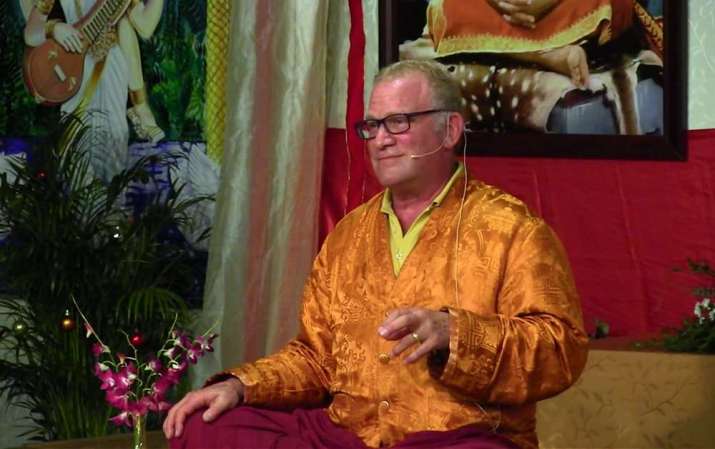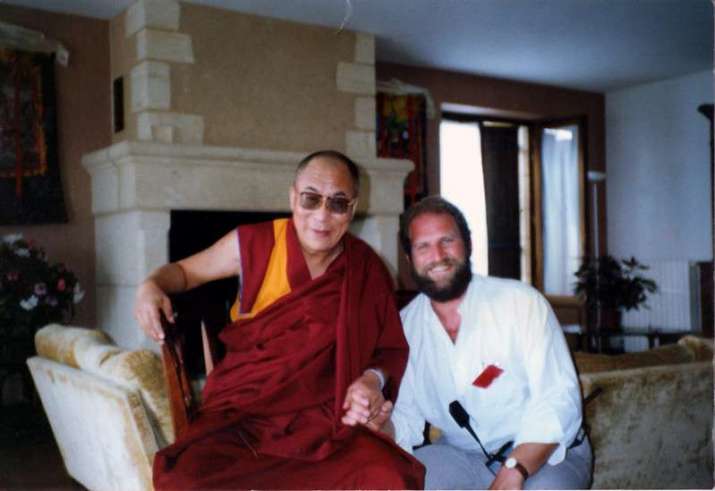
Last week, investigative journalist Joshua Eaton offered an extensive account of alleged cases of abuse of power and sexual misconduct by the well known American Dharma teacher Lama Surya Das. Writing for the Religious News Service, Eaton chronicled allegations of student-teacher sexual relationships that dated from the 1990s and 2000s.* In interviews this year, Surya Das admitted to some of the relationships and claimed no memory of other allegations.
Most recently, in 2019, retired employment lawyer Carol Merchasin collected accounts from five women who reported instances of abuse by Surya Das. Her work was part of a widespread effort to investigate allegations of abuse of power and sexual misconduct within Buddhist communities, including collaborating with Project Sunshine, which exposed patterns of abuse in Shambhala International. Merchasin presented the confidential accounts from the five women to Surya Das’ Cambridge, Massachusetts-based Dzogchen Center.
“We asked for them to do an investigation,” Merchasin said. “We were met with a distinct lack of interest in that.” (Religion News Service)

Surya Das, 69, born Jeffrey Miller, has become one of the best-known teachers of Tibetan Buddhism in America. According to the Religion News Service report, the first allegations regarding Das came about in 2008, when a student told another Buddhist teacher at the Dzogchen Center that she and Surya Das had engaged in an affair in the 1990s.
The allegations were not made public at the time, but led to confrontations between Surya Das and other teachers, as well as the turnover of most of the Dzogchen Center’s board of directors. Surya Das said that at the time, “In September at our Texas 100-day retreat I told the sangha what happened, that I had had an intimate relationship with this person. I apologized for my poor judgement and indicated that this would not happen again—and it didn’t.” (Religion News Service)
Nonetheless, Merchasin’s report led to interviews with several students and teachers affiliated with the Dzogchen Center, including one student who was willing to publicly accuse Das of misconduct in 2005. In interviews this year with Eaton, Laura Howell detailed an encounter during a 2005 retreat in which Surya Das suggested that it would benefit her spiritual progress if she meditated while sitting naked in his lap. She did not follow through with Das’ suggestion and later reported the encounter with her husband and another student of Das, both of whom corroborated her account.
Das has continued to teach online and at centers across the country. The Dzogchen Center, for its part, has posted a code of ethics and a policy against harassment and discrimination on its website.
Dr. Ann Gleig and Dr. Amy Langenberg, who are working on a collaborative book project, under contract with Yale University Press, on sexual misconduct and abuse in American Buddhist communities, told Buddhistdoor Global in a statement that through their research it had become clear “that the response to sexual misconduct and abuse plays a foundational role in community healing.”
They continued: “Two factors in particular are essential: transparency and accountability. Secrecy is a core element in sexual misconduct and has widespread corrosive effects on both the victims and wider community members. As a counter to such secrecy, what we call ‘an emerging ethic of transparency’ is being enacted on multiple levels from exposing offenders to developing healing community rituals. Once abuse is made transparent, it is essential for teachers and enabling community members to take full responsibility and be held accountable.”
Surya Das’ response is, Gleig and Langenberg say, “in clear tension with these new ethics,” insofar as he did not make a public apology in 2008 and has since claimed to not remember another well-detailed incident.
“When offenders fail to take responsibility for their actions, both their victims and the wider community suffer more,” said Gleig and Langenberg.
In an interview in 2012, Surya Das was asked about inappropriate relationships between students and teachers—at the time, the teachers Ken McLeod and Michael Roach were facing such allegations—and he responded, “This turns out to be more far-ranging and pervasive than originally thought, in most if not all of the religious and other power structure institutions today, and extending to sports coaches, therapy couches, medical offices, old age homes and hospitals, corporate settings, and so forth, as the informed public has now been finding out. What we can do to help alleviate this affliction is our task at hand.” (Patheos)
When contacted by Buddhistdoor Global after the Religion News Service article was published, Eaton added: “I will continue to report on Lama Surya Das and other Buddhist leaders who have engaged in sexual misconduct. Anyone with information they would like to share with me can get in touch at [email protected].”
* An earlier version of this article said “Eaton chronicled more than two decades of allegations spanning to the 1990s.” The allegations themselves do not date to the 1990s; according to the RNS article, “In the spring of that year [2008], an adult student told a teacher at the Dzogchen Center, the nonprofit Das founded in Cambridge, Massachusetts, in the 1990s, that she and Das had been having an affair.”
See more
Buddhist teacher Lama Surya Das admits sleeping with adult students in past, says it was wrong (Religion News Service)
Dzogchen Center Community Policies (Dzogchen Center)
An interview with Lama Surya Das: American Buddhist and Bestselling Author (Patheos)












